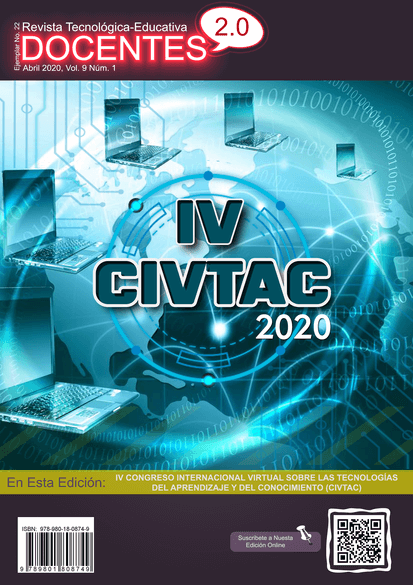The art of deciding, how to balance reason with emotion, who teaches us?
 DOI:
https://doi.org/10.37843/rted.v9i1.88
DOI:
https://doi.org/10.37843/rted.v9i1.88
Main Article Content
Abstract
Since we were born, our whole life is marked by the type and quality of the decisions we make. This determines what our "performance" will be in the achievements and failures obtained. For almost 40 years, with the development of technology, neurosciences have contributed (and continue) several research papers, in which it is shown that "emotion" exceeds "reason" when making a " decision”, whether it is simple or complex. The question and objective of this work is: who teaches us to make decisions? Is it something innate or can it be learned? If you can learn, who is awarded for such responsibility? Today we know that, unfortunately, the Latin American education system and parents are not trained, or do not have the need to teach how to handle "emotions", with those children who will grow up in a highly competitive society, so they have to make decisions that affect your present and your future.
Downloads
Metrics
Article Details

This work is licensed under a Creative Commons Attribution-NonCommercial-NoDerivatives 4.0 International License.
Those authors who have publications in our journal accept the following terms:
- When a work is accepted for publication, the author retains rights of reproduction, distribution of his/her article for exploitation in all countries of the world in the format provided by our magazine and any other magnetic medium, optical, and digital.
- Authors will retain their copyright and guarantee the journal the right first to publish their work, which will be simultaneously subject to the Creative Commons Acknowledgment License (Attribution-NonCommercial-NoDerivatives 4.0 International (CC BY-NC-ND 4.0)). That allows third parties to copy and redistribute the material in any medium or format, under the following conditions: Acknowledgment - You must properly acknowledge authorship, provide a link to the license, and indicate if any changes have been made. You may do so in any reasonable way, but not in a way that suggests you have the licensor's endorsement or receive it for your use. NonCommercial - You may not use the material for a commercial purpose. NoDerivatives - If you remix, transform, or build from the material, you cannot broadcast the modified material. There are no additional restrictions - You cannot apply legal terms or technological measures that legally restrict you from doing what the license allows.
- Authors may adopt other non-exclusive license agreements to distribute the published version of the work (e.g., deposit it in an institutional archive or publish it in a monographic volume) provided that the initial publication in this journal is indicated.
- Authors are allowed and recommended to disseminate their work through the Internet (e.g., in institutional telematic archives, repositories, libraries, or their website), producing exciting exchanges and increasing the published work's citations.
- Request of withdrawal an article has to be done in writing by the author to the Editor, becoming effective after a written response from the Editor. For this purpose, the author or authors will send correspondence via e-mail: [email protected].
- The author will not receive financial compensation for the publication of his work.
- All Docentes 2.0 Journal publications are under the Open Journal System (OJS) platform at: https://ojs.docentes20.com/.
References
Lee, I. (2019). El poder del cerebro. El Grano de Mostaza Ediciones.
Mora, F. (2017). Neuroeducación, solo se puede aprender aquello que se ama. Alianza Editorial.
Kahneman, D. (2017). Pensar rápido, pensar despacio. Editorial: Penguin Random House
Starobinsky, E. (2017). El Arte de Decidir, cómo equilibrar la intuición, la razón y las emociones. Editorial: Penguin Random House.






